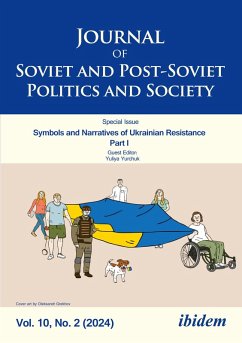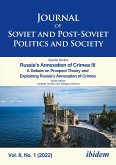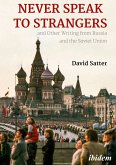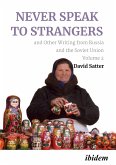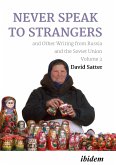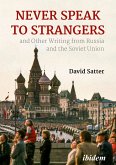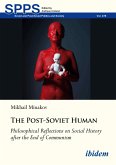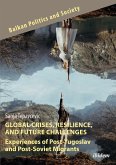CONTENTS
Special Issue: Symbols and Narratives of Ukrainian Resistance. Part I
Guest editor: Yuliya Yurchuk
Introduction. Understanding Ukrainian Spirit: Symbols and Narratives of Ukrainian Resistance and Resilience
Yuliya Yurchuk
Feeding the Feed: How Food Memes Reflect Resilience in Daily Life in a War-torn Ukraine
Daria Antsybor and Michel Bouchard
Cultural Memory and Decolonization: The Case of the Motherland Monument in Kyiv
Yana Prymachenko
The Pain of Courage: Re-Imagining Militarization and Masculinity in Ukrainian Digital Illustrations of Soldiers
Colby Fleming
This special issue proposes to approach Ukrainian resistance from the cultural studies perspective. It brings together scholars from different disciplines who address different aspects of resilience and resistance focusing on gender, humor, literature, visual representations, and memes. The authors approach these widely circulated images and narratives as expressions of deep cultural structures that produce meanings. They are rooted in history, past lived experiences, and societal structures that govern human activities and interactions. These images and narratives signal changes in the self-perception of people and shifts in worldviews shattered by war. Although the material analyzed by the authors is very different, they all come to the main overarching conclusion: Ukrainians at time of war actively renegotiate their identities and recalibrate their understanding of history and the place of Ukraine in the world.
Overall, the special issue contributes to the discussions on Ukrainian resistance relying on the evidence found in the grassroots local context. The articles collected here shed light on the deeper structures that enable production of images and narratives that we see on the surface. These structures are rooted in history, cultural memory, gender regimes, and politics. These structures too undergo renegotiations, transformation, and recalibration. To a certain extent, the articles not only analyze but also document and archive the cultural products created by Ukrainian society in the first years of the full-fledged invasion. As such, they will be also valuable as historical sources to be used by researchers in the future.
Special Issue: Symbols and Narratives of Ukrainian Resistance. Part I
Guest editor: Yuliya Yurchuk
Introduction. Understanding Ukrainian Spirit: Symbols and Narratives of Ukrainian Resistance and Resilience
Yuliya Yurchuk
Feeding the Feed: How Food Memes Reflect Resilience in Daily Life in a War-torn Ukraine
Daria Antsybor and Michel Bouchard
Cultural Memory and Decolonization: The Case of the Motherland Monument in Kyiv
Yana Prymachenko
The Pain of Courage: Re-Imagining Militarization and Masculinity in Ukrainian Digital Illustrations of Soldiers
Colby Fleming
This special issue proposes to approach Ukrainian resistance from the cultural studies perspective. It brings together scholars from different disciplines who address different aspects of resilience and resistance focusing on gender, humor, literature, visual representations, and memes. The authors approach these widely circulated images and narratives as expressions of deep cultural structures that produce meanings. They are rooted in history, past lived experiences, and societal structures that govern human activities and interactions. These images and narratives signal changes in the self-perception of people and shifts in worldviews shattered by war. Although the material analyzed by the authors is very different, they all come to the main overarching conclusion: Ukrainians at time of war actively renegotiate their identities and recalibrate their understanding of history and the place of Ukraine in the world.
Overall, the special issue contributes to the discussions on Ukrainian resistance relying on the evidence found in the grassroots local context. The articles collected here shed light on the deeper structures that enable production of images and narratives that we see on the surface. These structures are rooted in history, cultural memory, gender regimes, and politics. These structures too undergo renegotiations, transformation, and recalibration. To a certain extent, the articles not only analyze but also document and archive the cultural products created by Ukrainian society in the first years of the full-fledged invasion. As such, they will be also valuable as historical sources to be used by researchers in the future.

